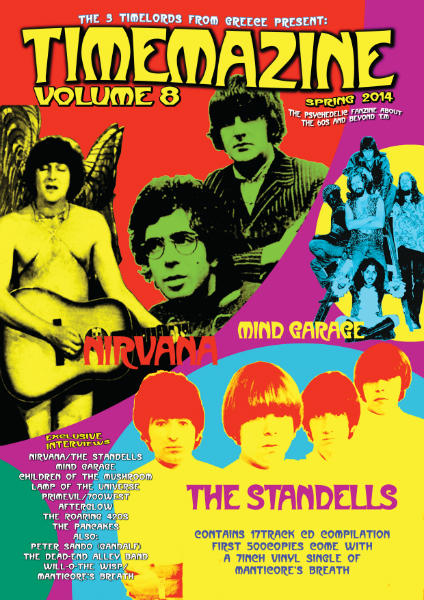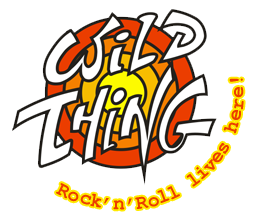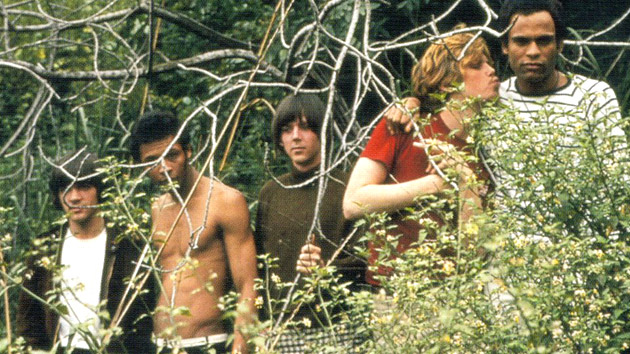
Michael Stuart-Ware: Sons of Adam, Love & beyond
[Άκης Γαρράς - 22/05/12]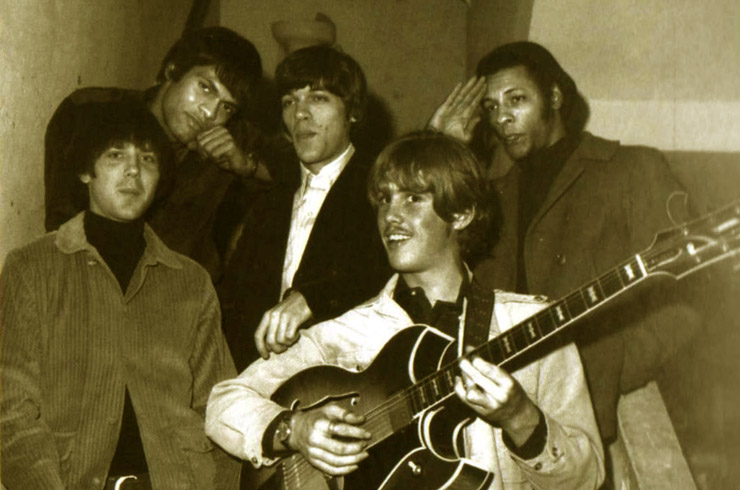
Οι Love είναι ένα από τα καλύτερα και σημαντικότερα συγκροτήματα στην ιστορία του rock'n'roll. Mουσικό όχημα της ιδιοφυίας που άκουγε στο όνομα Arthur Lee (1945-2006), το οποίο μέσα σε δύο χρόνια ηχογράφησε τρία ιστορικά άλμπουμ – ‘Love’ (1966), ‘Da Capo’ (1967) και το αριστουργηματικό ‘Forever Changes’ (1967). Ο Michael Stuart-Ware, ο εξαιρετικός ντράμερ του σχήματος από τα τέλη του 1966 έως τα μέσα του 1968, μας μίλησε για την συμμετοχή και την εμπειρία του στους Love αλλά και για το άλλο μεγάλο συγκρότημα στο οποίο ήταν μέλος, τους - άδικα - παραγνωρισμένους Sons Of Adam.
Wild Thing: Πότε ενδιαφερθήκατε για πρώτη φόρα για την μουσική & ποια ήταν η πρώτη μπάντα στην οποία παίξατε;
Michael Stuart-Ware: Το ενδιαφέρον μου για την μουσική ξεκίνησε από τότε που ήμουν μικρό παιδί. Οι πρώτες μου αναμνήσεις είναι από το τζαζ συγκρότημα του πατέρα μου, τους Salty Dogs, που τζάμαραν στο σαλόνι του σπιτιού μας. Ήταν μαγικό για μένα. Ο πατέρας μου ήταν πιανίστας, αλλά εμένα για κάποιο λόγο πάντα μου κέντριζαν το ενδιαφέρον τα ντραμς. Όταν ήμουν γύρω στα έξι σταμάτησα - με την συγκατάθεση των γονιών μου - τα μαθήματα πιάνου και μου αγόρασαν ένα από κείνα τα μικρά παιδικά μεταλλικά ντραμ σετ με το όποιο έπαιζα συνέχεια. Στο λύκειο είχα την πρώτη μου μπάντα με τον πατέρα μου και μερικούς φίλους. Ονομαζόμασταν Vibratones και είμασταν μία χορευτική τζαζ μπάντα που έπαιζε κομμάτια του Duke Ellington και άλλα παρεμφερή. Γενικά σε ό,τι αφορά την συμμετοχή μου σε πιο "οργανωμένες" μουσικές δραστηριότητες (σσ. εννοεί τις συμμετοχές σε σχολικά / φοιτητικά μουσικά σχήματα), ουσιαστικά ξεκίνησα παίζοντας κύμβαλα και τρίγωνο στην σχολική ορχήστρα του δημοτικού, στο γυμνάσιο ταμπούρο και στο λύκειο τιμπάνι το οποίο έπαιζα και στο πανεπιστήμιο Pepperdine και μετά όταν πήγα στο UCLA ταμπούρο και field drum. Στο UCLA φτιάξαμε με μερικούς φίλους ένα ροκ γκρουπ και παίζαμε σε φοιτητικούς χορούς.
WT: Ποιοι είναι οι μουσικοί που σας επηρέασαν περισσότερο;
MS-W: Οι μεγαλύτερες επιρροές μου καθορίστηκαν όταν πήγαινα στο λύκειο. Φυσικά άκουγα πρώιμο rock'n'roll όπως Jerry Lee Lewis, Fats Domino, Little Richard και Everly Brothers, καθώς και τζαζ καλλιτέχνες όπως Cannonball Adderley, Gerry Mulligan, Bill Evans και Chet Baker.
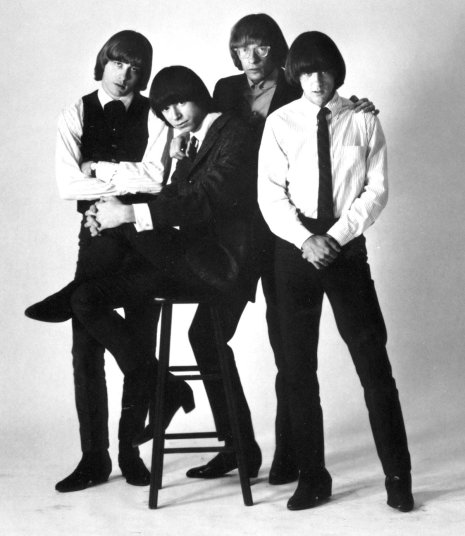 WT: Πώς ήταν η μουσική σκηνή του Λος Άντζελες στα μέσα της δεκαετίας του 60; Πείτε μας μερικά πράγματα για τους Sons Of Adam και για την συνεργασία σας με τον Randy Holden. (σσ. Randy Holden: ο φοβερός κιθαρίστας που μετά τους Sons Of Adam έπαιξε στους Other Half και βέβαια στους Blue Cheer)
WT: Πώς ήταν η μουσική σκηνή του Λος Άντζελες στα μέσα της δεκαετίας του 60; Πείτε μας μερικά πράγματα για τους Sons Of Adam και για την συνεργασία σας με τον Randy Holden. (σσ. Randy Holden: ο φοβερός κιθαρίστας που μετά τους Sons Of Adam έπαιξε στους Other Half και βέβαια στους Blue Cheer)
MS-W: Η μουσική σκηνή του LA - στην πραγματικότητα - ξεκίνησε με την «βρετανική εισβολή»… Beatles, Stones, Animals, Them, Kinks… και όλους αυτούς τους τύπους. Οι μουσικοί στο LA είπαν «μπορούμε κι εμείς να το κάνουμε αυτό». Εκείνη την εποχή ξεκίνησαμε να παίζουμε με τους Vectors - την φοιτητική μου μπάντα - σε μπαρ. Ένα βράδυ μαζί με τον Jim, τον ρυθμικό κιθαρίστα μας, είχαμε πάει να τσεκάρουμε ένα μπαρ που ονομαζόταν "The Mirage" στην Σάντα Μόνικα και η house band εκεί ήταν οι Fender Four: Randy Holden, Mike Port (μπάσο), Jac Ttanna (ρυθμική κιθάρα) και ο ντράμερ τους. Κυριολεκτικά μας τίναξαν τα μυαλά! Οι Fender Four έκαναν τους Vectors να φαίνονται σαν απλοί ερασιτέχνες. Έπαιζαν Beatles και Stones - σχεδόν το ίδιο καλά με τους Beatles & τους Stones - μαζί με το υπόλοιπο υλικό τους που έφεραν μαζί τους από την Βαλτιμόρη, και ήταν φοβεροί! Ο ήχος τους ήταν σκληρός και είχαν πραγματικά μακριά μαλλιά. O Randy ήταν μακράν ο καλύτερος κιθαρίστας που είχα δει και ο Mike Port ο καλύτερος μπασίστας. Δεν υπήρχε κάτι που να μην μπορούσαν να κάνουν με τα όργανα τους. Ήταν κάτι παραπάνω από επαγγελματίες και η μουσική τους στέκεται - άνετα - ακόμα και σήμερα. Είναι απ' τους καλύτερους ροκ μουσικούς που έχω δει ζωντανά και έχω δει τους πάντες: Hendrix, Stones, Beatles και Led Zeppelin συμπεριλαμβανομένων. Τέλος πάντων, εκείνη τη νύχτα καθόμασταν με τον Jim σ' ένα τραπέζι κοντά στην σκηνή και μεταξύ των κομματιών μιλάγαμε με την κοπέλα του Mike Port. Μας είπε ότι ο ντράμερ του γκρούπ δεν κόλλαγε μαζί τους και μας ρώτησε αν κάποιος απ' τους δυό μας ήταν ντράμερ. Τα υπόλοιπα είναι ίστορια. Λίγες μέρες αργότερα ο Randy και ο Mike ήρθαν στο σπίτι των γονιών μου, τζαμάραμε και την επόμενη μέρα τηλεφώνησαν και μου πρότειναν να μπω στην μπάντα. Οι Fender Four άλλαξαν το όνομα τους σε Sons Of Adam μετά από πρόταση του παραγωγού Kim Fowley. Παίζαμε στο Beaver Inn στο Westwood και ήταν στο ακροατήριο και σε ένα διάλειμμα ήρθε και μας είπε «Το Fender Four είναι σκατά όνομα. Θα έπρεπε να ονομάζεστε The Sons Of Adam». Και αυτό κάναμε.
WT: Πώς μπήκατε στους Love;
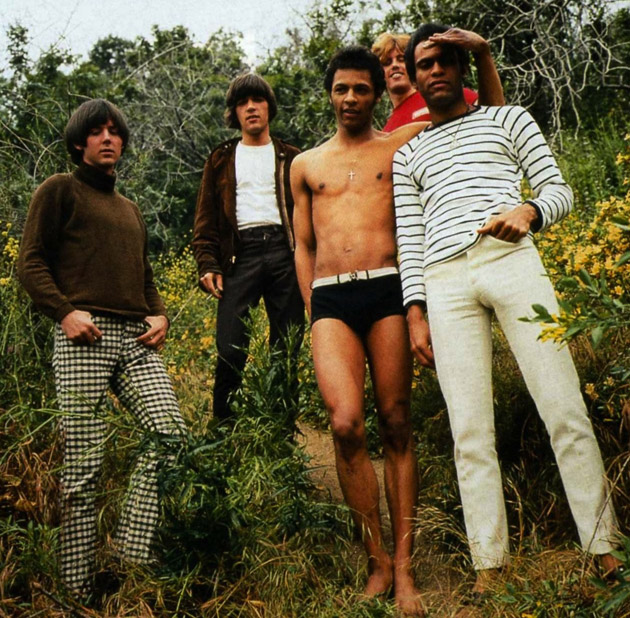 MS-W: Ένα χρόνο μετά, όταν παίζαμε στο Bido Lito στο Holywood, ο Arthur Lee με τον Bryan McLean, ήρθαν, με είδαν και μου πρότειναν να μπω τους Love.
MS-W: Ένα χρόνο μετά, όταν παίζαμε στο Bido Lito στο Holywood, ο Arthur Lee με τον Bryan McLean, ήρθαν, με είδαν και μου πρότειναν να μπω τους Love.
WT: Υπάρχουν πολλές ιστορίες για το Castle. (σσ. Το “castle” ήταν ένα μεγάλο σπίτι όπου έμεναν οι Love το 1966 και εκεί συνέβαιναν διάφορα ωραία…) Εσείς ζήσατε εκεί. Πώς ήταν η εμπειρία;
MS-W: Δεν έζησα καθόλου στο Castle. Είχα πάει μερικές φορές μετά απο πρόσκληση του Arthur όταν ακόμη έπαιζα με τους Sons Of Adam για να αράξουμε και να καπνίσουμε χόρτο. Δεν ήταν κάστρο, ήταν απλά ένα μεγάλο σπίτι στο Los Feliz με απειροελάχιστη επίπλωση. Την πρώτη φορά που είχαμε πάει με τον Mike Port, όταν μπήκαμε μέσα ακουγόταν μουσική και ο Arthur έκανε πατίνια στο σαλόνι. Μας είδε, μας χαιρέτισε χαμογελώντας, έκανε μια στροφή και συνέχισε πατινάροντας ατάραχος προς τα πίσω.
WT: Πείτε μου για την σχέση μεταξύ του Arthur Lee και του Bryan McLean και πώς αυτή επηρέαζε το γκρουπ.
MS-W: Όταν μπήκα στο συγκρότημα ο Arthur και ο Bryan ήταν δύο πολύ καλοί φίλοι που έκαναν συνεχώς πλάκες. Δυστυχώς ο καυγάς για μια κοπέλα που γούσταραν και οι δύο, την Stephanie (σσ. πρόκειται για την Stephanie που αναφέρεται στο "Stephanie Knows Who" στο δεύτερο άλμπουμ Da Capo), είχε ήδη συμβεί και πετάγανε μπηχτές ο ένας στον άλλο. Μπορεί να φαίνεται απλοϊκό, αλλά πάντα πίστευα πως η ρίζα του καρκίνου που τελικά κατέστρεψε το γκρουπ ήταν το ότι ο Bryan πήρε την Stephanie από τον Arthur. Ο Arthur δεν μπορούσε ποτέ να χειριστεί την ήττα εύκολα. Όποτε έχανε, έμενε έκπληκτος καθώς ήταν το «πρώτο αρσενικό».
WT: To άλμπουμ Da Capo ήταν πολύ περισσότερο επηρεασμένο από την τζαζ σε σχέση με το πρώτο. Τι έπαιξε ρόλο σε αυτό;
MS-W: O Arthur & o Johnny (Echols) ήταν jazz freaks και το πέρασμα από το folk rock του πρώτου άλμπουμ στο jazz rock του δεύτερου ήταν φυσικό επακόλουθο.
WT: Πείτε μου μερικές απο τις δυνατότερες αναμνήσεις σας απο τις ηχογραφήσεις του ‘Da Capo’ και του ‘Forever Changes’.
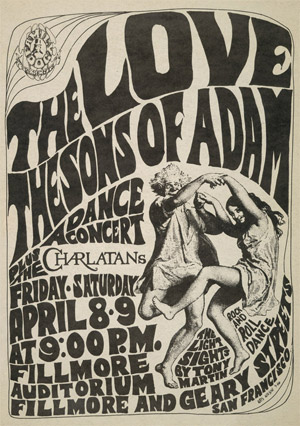 MS-W: Η ηχογράφηση της πρώτης πλευράς του Da Capo έγινε στα RCA studios στη λεωφόρο Sunset και η δεύτερη πλευρά ηχογραφήθηκε στο Sunset Sound. Μηχανικός ήχου στην πλευρά Α ήταν ο Dave Hassinger και ο Bruce Botnick στην Β. Το γκρουπ ήταν καλά προετοιμασμένο για την ηχογράφηση του δίσκου και όλοι τα πήγαν εξαιρετικά. Η διάθεση ήταν άψογη και όλα έγιναν όπως είχαν σχεδιαστεί.
MS-W: Η ηχογράφηση της πρώτης πλευράς του Da Capo έγινε στα RCA studios στη λεωφόρο Sunset και η δεύτερη πλευρά ηχογραφήθηκε στο Sunset Sound. Μηχανικός ήχου στην πλευρά Α ήταν ο Dave Hassinger και ο Bruce Botnick στην Β. Το γκρουπ ήταν καλά προετοιμασμένο για την ηχογράφηση του δίσκου και όλοι τα πήγαν εξαιρετικά. Η διάθεση ήταν άψογη και όλα έγιναν όπως είχαν σχεδιαστεί.
Αντίθετα στο Forever Changes τα πράγματα δεν πήγαν και πολύ καλά. Δεν είχαμε προβάρει το υλικό αρκετά και οι σχέσεις μεταξύ μας δεν ήταν αυτές που θα έπρεπε. Kαι όταν δεν βγήκε άνετα το πρώτο κομμάτι μετά απο μερικά takes, o Arthur και ο Botnick αποφάσισαν γρήγορα ότι ο καλύτερος τρόπος για να γίνει το άλμπουμ είναι να καλέσουν τους στούντιο μουσικούς των Beach Boys και αυτό έκαναν. Η ιδέα δεν δούλεψε καθόλου. Ο ήχος δεν ήταν αυτός που θα ήθελαν. Πολύ πειθαρχημένος και ρομποτικός. Το έπαιξαν σαν να ήταν το "Pet Sounds part 2". Χωρίς ψυχή. Και όταν τελικά αποφασίσαμε να κάνουμε εμείς τα ορχηστρικά μέρη τα καταφέραμε και με το παραπάνω. Το δίκαιο νικάει το ισχυρό. Κερδίσαμε.
WT: Το Forever Changes είναι ένα απ΄τα καλύτερα άλμπουμ όλων των εποχών. Η δημοτικότητα και η σημαντικότητα του μεγαλώνουν με το πέρασμα του χρόνου όλο και περισσότερο. Ποια είναι η γνώμη σας;
MS-W: Ο Arthur ήταν μεγάλος τραγουδοποιός και το γράψιμό του ήταν πολύ μπροστά από την εποχή του. Έτσι και το Forever Changes ήταν μπροστά απ’ την εποχή του. Δεν νομίζω ότι οι ακροατές κατανόησαν το δίσκο με την πρώτη, έτσι πήρε καιρό για να ανακαλύψει το κοινό το υλικό. Υποθέτω ότι αυτός είναι και ο λόγος που το άλμπουμ δεν γνώρισε αρχικά εμπορική επιτυχία. Αυτό συν το γεγονός ότι η Electra ήταν - τότε - μια νέα εταιρεία με οικονομικές δυσκολίες και περιορισμένη διανομή, και το ότι εμείς δεν κάναμε αρκετές συναυλίες για να το προωθήσουμε.
WT: Πώς ήταν η εμπειρία των συναυλιών με τους Love;
MS-W: Το να παίζεις live με τους Love; Μερικές φορές ήταν διασκεδαστικό και μερικές φορές ήταν απλά δουλειά. Το να είσαι high δημόσια είναι κάτι δύσκολο να το συνηθίσεις, αλλά όταν κανείς δεν σε παίρνει χαμπάρι έχει την πλάκα του.
WT: Με τους Love παίξατε και στο San Francisco. Πώς ήταν η μουσική σκηνή εκεί;
MS-W: Το San Francisco είχε τελείως διαφορετική ατμόσφαιρα από το Hollywood και απ' οπουδήποτε αλλού. Δύσκολο να το περιγράψεις με λέξεις, ήταν διαφορετικό. Νομίζω ότι όλα ξεκινούν απ' το γεγονός ότι το San Francisco βρίσκεται σε όμορφη γεωγραφική θέση και ότι ήταν το κέντρο του πρώτου κινήματος ειρήνης. Η αρχιτεκτονική, η ομίχλη, το συνεχές και γλυκό ψιλοβρόχι, ιστορικοί χώροι όπως το Fillmore, το Winterland και το Avalon Ballroom, το ξενοδοχείο Richelieu, όπου μέναμε συνήθως με τον ανθρωπάκο που μέρα νύχτα χειριζόταν το παλιομοδίτικο ασανσέρ καθισμένος στο ξύλινο κάθισμα του. Όλα ταίριαζαν με το groove όπως και οι άνθρωποι που έρχονταν στις συναυλίες. Ήταν απλά μία μοναδική κατάσταση νου. Περισσότερο ονειρικό μέρος παρά πραγματικό…
WT: Πιστεύετε ότι η στροφή από τα ψυχεδελικά στα σκληρά ναρκωτικά κατέστρεψε την σκηνή;
MS-W: Ναι, πιστεύω ότι είναι ακριβές να πούμε ότι η ροπή στα σκληρά ναρκωτικά συνέβαλε αποφασιστικά στο τέλος της εποχής της ειρήνης και της αγάπης. Αυτό λένε τουλάχιστον οι κοινωνιολόγοι. Όταν είσαι φτιαγμένος με ηρωίνη, είσαι μονίμως ευερέθιστος και δεν αντέχεις τον δυνατό θόρυβο… μία διάθεση που δεν έχει καμμία σχέση με ειρήνη και αγάπη.
WT: Γιατί διαλύθηκε το σχήμα που συμμετείχε στο Forever Changes; Κρατήσατε επαφή ή παίξατε ξανά με τα υπόλοιπα μέλη του γκρούπ;
MS-W: Διαλυθήκαμε απλά γιατί ο Arthur σταμάτησε να δέχεται προσφορές για συναυλίες και σε μας τους υπόλοιπους δεν έπεφτε λόγος για το θέμα, αφού δεν ήταν καθόλου δεκτικός στην συμβολή μας. Μετά από λίγο καιρό ο Johnny (Echols), ο Kenny (Forsi), o Bryan κι εγώ βαρεθήκαμε να περιμένουμε να χτυπήσει το τηλέφωνο και κινηθήκαμε προς εξερεύνηση άλλων ευκαιριών. Η μπάντα ξαναφτιάχτηκε περίπου ένα χρόνο αργότερα (1969 ή 1970) αφού ο Arthur είχε ηχογραφήσει με άλλο μουσικό σχήμα το άλμπουμ Four Sail και είχε υπογράψει με την εταιρεία Blue Thumb… και χωρίς τον Bryan, που ηχογραφούσε τον προσωπικό δίσκο του. Κάναμε κάποιες συναυλίες και το αποτέλεσμα ήταν αναπάντεχα καλό (λέω αναπάντεχα, γιατί δεν είχαμε τον Brian). Παρ' όλα αυτά, η φάση διαλύθηκε γρήγορα.
WT: Μετά τους Love συνεχίσατε να ασχολείστε με την μουσική; Παίξατε με άλλα γκρούπ;
MS-W: Μετά τους Love έπαιξα με άλλα γκρούπ… C.K. Strong, Danny O’Keefe, Neil Diamond και μερικές μπάντες που δεν είχαν καν όνομα…αλλά άρχισα να νοιώθω μια φοβερή ανάγκη να φύγω από το Hollywood τελείως και να αφήσω τα ναρκωτικά. Έτσι βρήκα μια κανονική δουλειά και μπήκα στην νομική. Όχι, δυστυχώς δεν την τελείωσα και δεν έγινα δικηγόρος, αλλά αυτό είναι μία άλλη ιστορία.
WT: Ποιες μουσικές σκηνές σας κίνησαν το ενδιαφέρον έκτοτε; Ποια η γνώμη σας για είδη όπως τα punk, new wave, neo-psychedelia, grunge κ.λπ.; Ξεχωρίζετε κάποια γκρουπ ή μουσικούς;
MS-W: Δεν παρακολούθησα ποτέ πραγματικά το punk ή το new wave, αλλά έχω ακούσει καλά πράγματα από το grunge και το death metal ακόμα και από country. Θέλω να πω, ο Curt Cobain, ο τύπος είχε ταλέντο. Ποια country; Την crossover, τύπου Collin Raye / "Little Red Rodeo" και Juice Newton / "Love's Been a Little Bit Hard On Me". Τώρα που το σκέφτομαι αυτά πρέπει να είναι. Αλλά είναι καλοπαιγμένα και καθαρά κομμάτια. Μέχρι ενός σημείου δεν είναι τι παίζεις αλλά πώς το παίζεις, εκτός βέβαια από την πόλκα. Πραγματικά δεν θυμάμαι να έχω ακούσει ποτέ μου καλή πόλκα… ξέρεις σαν τον Lawrence Welk. (σσ. ένας μάλλον ψιλο-αστείος τύπος που είχε μουσική εκπομπή στην αμερικάνικη τηλεόραση για κάμποσα χρόνια και μεταξύ άλλων έπαιζε μπόλικη πόλκα!) Ίσως πρέπει να πιείς πολλές μπύρες για να σου αρέσει η πόλκα!
WT: Τι μουσική ακούτε αυτή την εποχή;
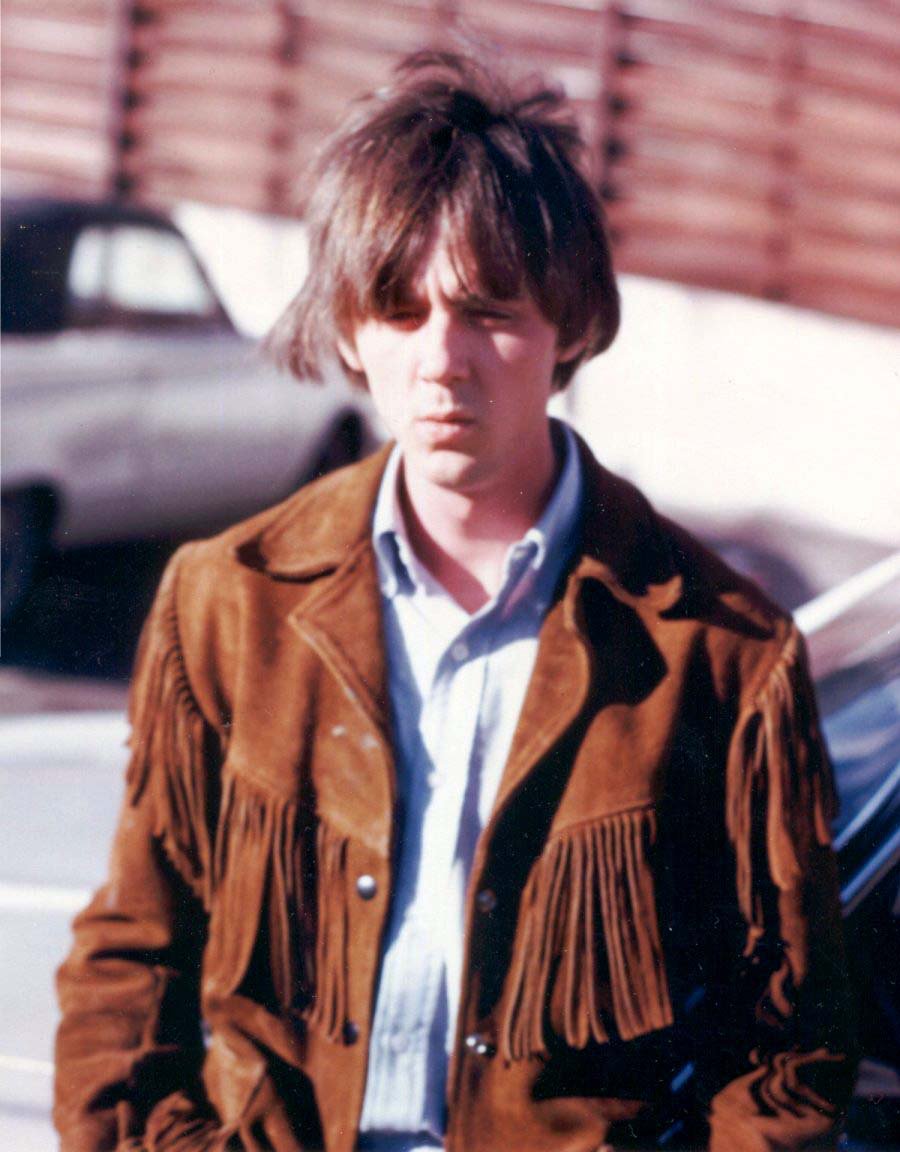 MS-W: Τι ακούω; Όπως στην ζωή έτσι και στην μουσική η ποικιλία είναι το καρύκευμα. Κινούμαι γύρω και μεταξύ τζαζ, ροκ και κλασικής μουσικής. Από τζαζ ακούω περισσότερο υλικό από τις αρχές της δεκαετίας του '60 όπως οι Hank Crawford, Gerry Mulligan, Bill Evans, Art Pepper, Sonny Rollins, Art Blakey, Miles και Coltrane και όλοι αυτοί οι τύποι, γιατί η μουσική τους είναι προϊόν αυτοσχεδιασμού πάνω σε ό,τι ποιοτικό προηγήθηκε και προάγγελος ό,τι ποιοτικού ακολούθησε. Περιστασιακά ακούω πρώιμο ροκ όπως Link Wray, James Brown και Jackie Wilson και απ' τα μέσα & τέλη της δεκαετίας του '60 τους Fleetwood Mac με τον Peter Green καθώς και σκληροπυρηνικό blues όπως ο Muddy Waters. Από κλασική μουσική, Sibelius και Stravinsky. Η καλή μουσική είναι ένα πανέμορφο και ατελειώτο ποτάμι πνευματικής αυθεντικότητας και κατάθεσης ψυχής.
MS-W: Τι ακούω; Όπως στην ζωή έτσι και στην μουσική η ποικιλία είναι το καρύκευμα. Κινούμαι γύρω και μεταξύ τζαζ, ροκ και κλασικής μουσικής. Από τζαζ ακούω περισσότερο υλικό από τις αρχές της δεκαετίας του '60 όπως οι Hank Crawford, Gerry Mulligan, Bill Evans, Art Pepper, Sonny Rollins, Art Blakey, Miles και Coltrane και όλοι αυτοί οι τύποι, γιατί η μουσική τους είναι προϊόν αυτοσχεδιασμού πάνω σε ό,τι ποιοτικό προηγήθηκε και προάγγελος ό,τι ποιοτικού ακολούθησε. Περιστασιακά ακούω πρώιμο ροκ όπως Link Wray, James Brown και Jackie Wilson και απ' τα μέσα & τέλη της δεκαετίας του '60 τους Fleetwood Mac με τον Peter Green καθώς και σκληροπυρηνικό blues όπως ο Muddy Waters. Από κλασική μουσική, Sibelius και Stravinsky. Η καλή μουσική είναι ένα πανέμορφο και ατελειώτο ποτάμι πνευματικής αυθεντικότητας και κατάθεσης ψυχής.
WT: Παίζετε και μελετάτε ακόμα; Παίζετε με κάποια μπάντα;
MS-W: Εξακολουθώ να έχω και να παίζω ντραμς. Κατεβαίνω στο Λος Άντζελες περιστασιακά (επειδή είναι οκτώ ώρες μακριά οδικώς και το να πας αεροπορικώς είναι βαρετό) αλλά, όποτε πηγαίνω, συνήθως προσπαθώ να βρω που παίζουν ο Johnny Echols με τους Baby Lemonade για να τζαμάρουμε. Σε δύο εβδομάδες μετακομίζω στο Λας Βέγκας και ελπίζω να γνωρίσω εκεί μουσικούς που να είναι στην φάση μου.
WT: Το βιβλίο σας Behind the Scenes - On the Pegasus Carousel with the Legendary Rock Group Love κυκλοφόρησε το 2003. Πώς αποφασίσατε να γράψετε ένα βίβλιο;
MS-W: Αποφάσισα να το γράψω όταν ο συγγραφέας Kevin Delaney, που σχεδίαζε να γράψει ένα βιβλίο για τους Love, δεν έβρισκε εκδότη και το παράτησε. Ανυπομονούσα να διορθώσω μερικές λανθασμένες πληροφορίες σχετικά με την μπάντα και την ιστορία της. Οπότε αποφάσισα να το δοκιμάσω εγώ. Αυτός είναι ο μόνος λόγος που το έγραψα, για να διορθώσω κάποιες παρανοήσεις γύρω απ' το γκρουπ. Ποιες παρανοήσεις; Υπήρχαν διάφορες. Ένα παράδειγμα είναι όταν ο Kevin με προετοίμαζε για την συνέντευξη μου, μου έδειξε μια συνέντευξη του Bruce Botnick στην οποία έλεγε πως όταν η Electra αποφάσισε να χρησιμοποιήσει στούντιο μουσικούς για να τελειώσουν το Forever Changes καθόμασταν όλοι οι Love σε έναν καναπέ και κλαίγαμε με μαύρο δακρυ. Ότι κλαίγαμε με αναφιλητά κ.λπ. επειδή ήμασταν πολύ στεναχωρημένοι. Νομίζω πως επειδή πέρασαν τριάντα χρόνια από την εποχή που ηχογραφήσαμε το Forever Changes μέχρι που κάποιος ρώτησε τον Bruce για τον δίσκο, αυτός μάλλον μας μπέρδεψε με το συγκρότημα The Babies (σσ. το συγκρότημα αυτό βέβαια δεν υπήρξε - ο Michael κάνει ειρωνικό σχόλιο πάνω στα λεγόμενα του Botnick). Αυτή είναι η θεωρία μου: μας μπέρδεψε με τους Babies που έκλαιγαν πολύ. Γιατί απ' ό,τι θυμάμαι δεν είδα ποτέ τον Bryan, τον Kenny, τον Johnny ή τον Arthur να κλαίνε, αφού ήταν σκληροί τύποι και όχι κάποιοι που θα έβαζαν τα κλάματα αν τα πράγματα δεν πήγαιναν καλά. Κανείς δεν έκλαψε εκείνη τη μέρα. Είμασταν σκυθρωποί και τσαντισμένοι σε φάση να κλωτσίσουμε κάνα κώλο. Υποθέτω ότι το σκηνικό με τα κλάματα έφτιαχνε μια πιασάρικη ιστορία, έτσι δεν είναι Bruce;
WT: Το βιβλίο σας είναι ακόμα διαθέσιμο;
MS-W: Απ' όσο γνωρίζω δεν υπάρχουν κόπιες από την πρώτη έκδοση του βιβλίου που να διατίθενται σε λογική τιμή, όμως, είναι προγραμματισμένο τον Ιούλιο να κυκλοφορήσει μια ανανεωμένη επανέκδοση.
WT: Κύριε Stuart σας ευχαριστούμε πολύ για τον χρόνο σας. Είναι τιμή μας που σας έχουμε στο ‘Wild Thing’.
MS-W: Σας ευχαριστώ παιδιά για την συνέντευξη.
Ακολουθεί το κείμενο της συνέντευξης στα Αγγλικά:
Love is one of the best and most important groups in the history of rock'n'roll. It was the musical vehicle for the genius of Arthur Lee (1945 - 2006) which produced three historic albums in two years – ‘Love’ (1966), ‘Da Capo’ (1967) and the masterpiece ‘Forever Changes’ (1967). Michael Stuart-Ware, the group's exceptional drummer from late 1966 till id 1968, spoke with us about his experience playing with Love, and also about the other great band he played in, the - unjustly - unrecognized Sons of Adam.
Wild Thing: What first got you interested in music & what was the first band you played in?
Michael Stuart-Ware: I’ve been interested in music since I was a little kid, actually. My very first memories are of my dad’s jazz group, The Salty Dogs, jamming in our living room back in east Texas. It was magic. He was a pianist, but I was always drawn to the drums for some reason, and when I was around six, my folks kindly allowed me to stop taking piano lessons and bought me one of those small toy metal drum sets, which I played and played.
My very first band was in high school, with my dad and some friends. The Vibratones, we called ourselves… a jazz dance band. We played Duke Ellington charts and such.
As far as organized music, in general, I really started out playing cymbals and triangle in my elementary school orchestra, then in junior high I played snare drum, and then in high school I switched over to timpani, which is what I played at Pepperdine University, then snare and field drum at UCLA. At UCLA I formed a rock group with some friends and we played a lot of fraternity dances.
WT: Which musicians have influenced you the most?
MS-W: My major influences were more or less established in high school. I listened to early rock and roll, of course, like Jerry Lee Lewis, Fats Domino, Little Richard and The Everly Brothers; and jazz artists like Cannonball Adderley, Gerry Mulligan, Bill Evans and Chet Baker.
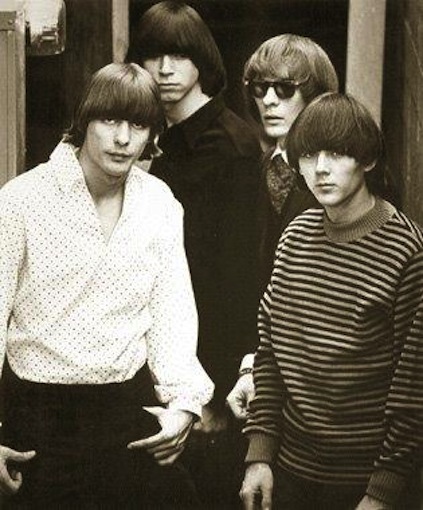 WT: How was the music scene of L.A. in the mid 60's? Tell me a few things about the Sons Of Adam & your collaboration with Randy Holden.
WT: How was the music scene of L.A. in the mid 60's? Tell me a few things about the Sons Of Adam & your collaboration with Randy Holden.
MS-W: The 60s music scene in L.A. really started with the British Invasion… The Beatles, The Stones, The Animals, Them, The Kinks… all those guys. Then the musicians in L.A. said, “Hey we can do that too.” Around that time I was starting to play the bar circuit with my fraternity band, The Vectors. One night, Jim (the rhythm guitarist) and I were checking out a bar called “The Mirage,” in Santa Monica, and The Fender Four were the house band there. That was Randy Holden, Mike Port, Jac Ttanna and their drummer. They literally blew our minds. The Fender Four made The Vectors look like rank amateurs. They played Beatles and Stones almost as good as The Beatles and The Stones, along with some other material they brought with them from Baltimore, and they were just so good. They were hard rockin’ with real long hair. Randy was the best guitarist I had ever seen by far, and Mike Port was the best bass player. There was literally nothing they couldn’t do on their instruments. They were beyond professional, and their musicianship holds up even today. They’re still among the best rock musicians I ever saw play live and I saw everybody, including Hendrix, The Stones, The Beatles and Led Zeppelin.
So anyway, that night Jim and I were sitting at a table down near the stage, and between songs Mike Port’s girlfriend struck up a conversation with us. Almost right away, she was telling us the drummer in the group wasn’t that tight with the band and she asked if one of us was a drummer, so the rest is history. Randy and Mike came over to my parents’ house a few days later and we jammed and the next day they called and offered me the job.
The Fender Four became The Sons of Adam at the suggestion of promoter Kim Fowley, who happened to be in the audience one night when we were playing The Beaver Inn in Westwood. We were on a break and he came up to us and he said, “The Fender Four is a dogshit name. You guys should call yourselves, ‘The Sons of Adam’.” So we did.
WT: How did you join Love?
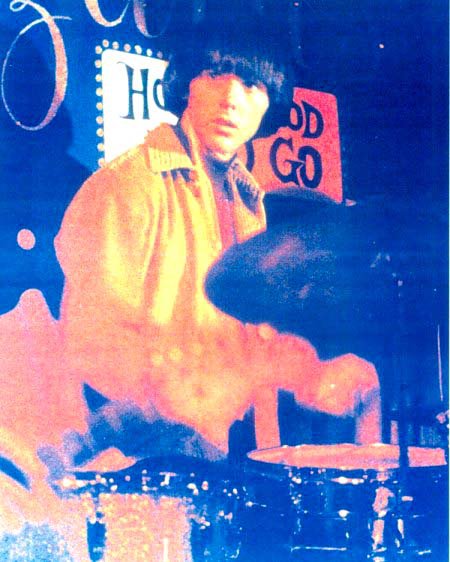 MS-W: About a year later, we were playing Bido Lito’s in Hollywood and Arthur (Lee) and Bryan (McLean) came in and saw me playing and offered me the job with Love.
MS-W: About a year later, we were playing Bido Lito’s in Hollywood and Arthur (Lee) and Bryan (McLean) came in and saw me playing and offered me the job with Love.
WT: There are many stories about The Castle. Did you live there & what was the experience like?
MS-W: I never lived at The Castle. I was there a couple of times at Arthur’s invitation when I was still with The Sons of Adam, just to hang out and smoke weed. It wasn’t a castle. It was just a big house in Los Feliz with not very much furniture. The first time I was there, Mike Port and I walked in and there was music playing and Arthur was roller skating around the living room. When he looked up and saw us, he gave a wave and a smile and whipped around, and started skating backwards without missing a beat.
WT: Tell me about the relationship between Arthur Lee & Bryan McLean and how this affected the group.
MS-W: When I joined up, Arthur and Bryan were great friends who kidded around constantly, but the unfortunate fight over the affections of Stephanie had already happened by then, so there were the occasional not-so-humorous barbs between the two over the subject. Maybe it’s too simplistic, but I’ve always felt that Bryan having taken Stephanie from Arthur was at the root of the cancer that eventually destroyed the group. Arthur could never handle defeat very well. It always kind of took him by surprise, because you know, Arthur was the alpha male.
WT: The Da Capo album was much more jazz influenced than the first album. What played a role in this?
MS-W: Arthur and Johnny (Echols) were jazz freaks, so I guess the natural sequence of events for Love’s music was to progress from the folk rock of the first album to the jazz rock of the second.
WT: Tell me about some of your strongest memories from the recordings of Da Capo and Forever Changes.
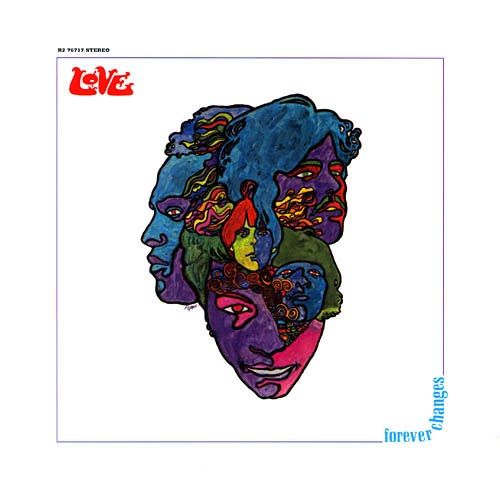 MS-W: The recording for the A side of Da Capo took place at RCA Studios on Sunset and the B side was recorded at Sunset Sound. Dave Hassinger engineered side A, and Bruce Botnick side B.
MS-W: The recording for the A side of Da Capo took place at RCA Studios on Sunset and the B side was recorded at Sunset Sound. Dave Hassinger engineered side A, and Bruce Botnick side B.
The group was well-rehearsed for the Da Capo sessions and everybody got along real well. The mood was light and pretty much everything went as planned.
Forever Changes, not so much. We hadn’t rehearsed the material sufficiently, we weren’t getting along as bandmates should, and when we didn’t get the first song down on the first few takes, Arthur and Botnick were quick to jump to the conclusion that the most efficient way to get the album done would be to call in The Beach Boys’ studio musicians, so they did. Didn’t work out, that idea. The sound they got was not exactly what the doctor ordered. Too regimented and robotic. They played it like it was, “Pet Sounds, Part 2.” No soul. So the feeling we had when we were finally permitted to do the instrumental tracks ourselves after all was, I suppose, a feeling of victory. “Right over might,” as it were. We won.
WT: Forever Changes is one of the best albums of all times. However its popularity & importance have grown gradually over the past decades and continue to grow. What's your opinion about this?
MS-W: Arthur was a great writer and his writing was way ahead of its time, so therefore, Forever Changes was ahead of its time. I don’t think the record-listening public got it at first, so it took a while for society to grow into the material. I suppose that’s why the album didn’t meet with a lot of initial success. That, and the fact that Elektra was still a financially strapped fledgling label with limited distribution and we really didn’t follow up and tour sufficiently to promote it.
WT: How was the experience of playing live with Love? What are your favorite moments of Love concerts?
MS-W: Playing live with Love? Sometimes it was fun. Sometimes it was just business as usual. Getting high in public places was a bit hard to get used to, but I guess as long as nobody calls you on it, it’s cool.
WT: Love also played in San Francisco. What was the music scene like there & how did Haight Asbury seem to you?
MS-W: San Francisco was a totally different environment than Hollywood or anywhere else for that matter. Hard to put into words, it was just different. I guess it starts with San Francisco being so geographically beautiful and the center of the early peace movement. The architecture, the fog, the constant and gentle light rain, historic venues, like The Fillmore, Winterland and The Avalon Ballroom, The Richelieu Hotel, where we usually stayed, and the little man who ran the old-fashioned elevator, with the ancient hand crank operation… night and day he was always on duty, sitting dependably on his fold-down wooden seat and never seeming to sleep… everything just fit right into the groove, as did the people who attended the concerts. It was simply a unique mindset. More like a dreamworld than a real place.
WT: Do you believe that the turn from psychedelics to hard drugs destroyed the scene?
MS-W: Yes, I guess it’s accurate to say that the gravitation to harder drugs was a deciding influence in ending the era of peace and love. That’s what the social scientists say anyhow. When you ’re high on heroin, you ’re perpetually irritable and don’t like loud noises… a mood not peaceful or loving by any means.
WT: Why did the Forever Changes Love line-up split? Did you stay in contact or play again with the other band members?
MS-W: The Forever Changes line-up split simply because Arthur stopped accepting offers to play and the rest of us had no say in the matter because he wasn’t at all receptive to our input. After a while, Johnny and Kenny and Bryan and I got fed up waiting for the phone to ring and moved on to explore other opportunities. The band reformed about a year later (1969 or 1970?) after Arthur had recorded the Four Sail album with other guys and signed with Blue Thumb… but we reformed without Bryan, who was already working on a solo project. We played some gigs and sounded surprisingly good, (I say, “surprisingly,” because we didn’t have Bryan) but it fell apart too soon, nevertheless.
WT: What did you do in music after Love? Did you play with other groups?
MS-W: After Love, I played with other groups… C.K. Strong, Danny O’Keefe, Neil Diamond, and some bands that never had a name… but I began to feel a compulsion to get out of Hollywood altogether and get off drugs, so I got regular work and entered law school. No, unfortunately I didn’t stick it out and become a lawyer, but that’s a whole different story.
WT: Which music scenes have you been interested in since then? What's your opinion about punk, new wave, neo-psychedelia, grunge etc. Do certain groups or musicians stand out for you?
MS-W: I’ve never really followed punk or new wave, but I’ve heard good stuff from grunge and death metal and even country. I mean, Kurt Cobain? The guy was talented. What country? “Crossover,” I guess, like Collin Raye’s “Little Red Rodeo,” and Juice Newton’s “Love’s Been A Little Bit Hard On Me.” Maybe that’s about it, come to think of it. But those are clean cookin’ tunes man. Clean as Tide. To a limited extent, it’s not what you play, it’s how you play it, except for polka music. I never actually heard any good polka music that I can recall… you know, like Lawrence Welk? Maybe you have to drink a lot of beer to like polka music.
WT: What kind of music do you listen to these days?
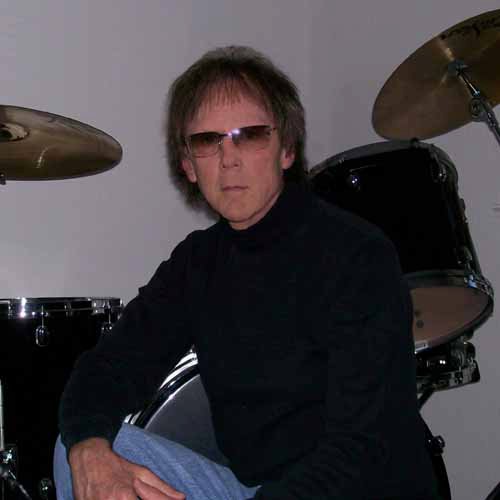 MS-W: Who do I listen to? Variety is the spice of life, so that’s how I listen to music. I bounce around between jazz, and rock and classical, but mostly early sixties-era stand-up-bass jazz, like Hank Crawford and the aforementioned Gerry Mulligan and Bill Evans and Art Pepper and Sonny Rollins and Art Blakey, and Miles and Coltrane and all those guys, because their music is an improvisational result of, and a precursor to, anything of quality produced before or since. I listen to some early rock, occasionally, like Link Wray and James Brown and Jackie Wilson and from the mid-sixties, Peter Green’s Fleetwood Mac. Hard core blues, like Muddy Waters. Classical? Sibelius and Stravinsky. All over the place, the good music is… a beautiful and never-ending stream of righteousness.
MS-W: Who do I listen to? Variety is the spice of life, so that’s how I listen to music. I bounce around between jazz, and rock and classical, but mostly early sixties-era stand-up-bass jazz, like Hank Crawford and the aforementioned Gerry Mulligan and Bill Evans and Art Pepper and Sonny Rollins and Art Blakey, and Miles and Coltrane and all those guys, because their music is an improvisational result of, and a precursor to, anything of quality produced before or since. I listen to some early rock, occasionally, like Link Wray and James Brown and Jackie Wilson and from the mid-sixties, Peter Green’s Fleetwood Mac. Hard core blues, like Muddy Waters. Classical? Sibelius and Stravinsky. All over the place, the good music is… a beautiful and never-ending stream of righteousness.
WT: Are you still practicing drums? Do you play in a band?
MS-W: I still have drums and I still play drums. I only get down to L.A. occasionally, (because it’s like an eight-hour drive and flying is a drag) but when I do, I usually try to find an opportunity to discover where Johnny and Baby Lemonade are playing and I go sit in for a few. I’ll be moving to Las Vegas in a couple of weeks, so hopefully I’ll meet up with some like-minded musicians there.
WT: Your book Behind the Scenes - On the Pegasus Carousel with the Legendary Rock Group Love was published in 2003. How did you decide to write it?
MS-W: I decided to write the book when the L.A. writer (Kevin Delaney), who was planning to write it, couldn’t find a publisher and dropped the project. I was looking forward to setting the record straight regarding some mistaken beliefs about the band and our history, so I thought, “I’ll give it a try myself.” That’s the only reason I wrote it, to correct misconceptions. What misconceptions? There were a bunch, but one example was, when Kevin was prepping me for my interview, he showed me an interview with (Forever Changes engineer) Bruce Botnick, where he said, when Elektra was going to call in studio musicians to finish the album for us, we were all over sitting on a couch “crying real tears.” You know… really going at it, I guess, blubbering and dabbing our eyes with tissues because we were so sad.
See, I think what happened was, around thirty years passed between the time we recorded Forever Changes and the time when somebody asked cousin Bruce about it. So my theory is, he got us mixed up with that band “The Babies.” I think maybe he engineered The Babies, because I know they probably did a lot of crying. But as far as the guys in Love go, I never saw Bryan or Kenny (Forsi) or Johnny or Arthur cry that I can remember, because they were bad dudes, not exactly into crying when things didn’t go their way. Nobody cried that day. We were sullen and pissed off enough to kick somebody’s ass though, if that counts. I guess the crying thing made a good story though, right Bruce? That’s one.
WT: Is your book still available?
MS-W: There are really no first-edition copies of Pegasus around for a reasonable price, to my knowledge, but a revised/updated edition of the book is due to be released in July.
WT: Mr. Stuart, thank you very much for your time. It's a honor for us having you in Wild Thing.
MS-W: Thanks for the interview, guys.
The Sons of Adam: "Feathered Fish" (1966)
The Sons of Adam in the movie "A Slender Thread"
Love: "Stephanie Knows Who" (1967)
Love: "Maybe The People Would Be The Times Or Between Clark And Hilldale" (1967)
